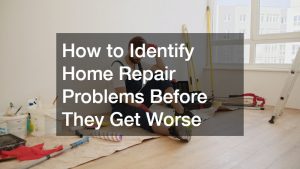The expenses of acquiring a home don’t stop after the mortgage closes, not even after you move into the house. A lot of first-time homebuyers make the mistake of not considering the costs that come after buying a home, and so find themselves unprepared for the extra costs such as landscaping, repairs, house cleaning, and so much more that need to be paid in order to settle in completely.
Don’t let these extra expenses take you by surprise. Here are several costs that you should consider and allot a budget for before you buy a home:
1. Landscaping
One of the most expensive parts of the home to maintain is the lawn. If you were a renter before buying a house, this is not something you had to worry about. But when you become a homeowner, you may be surprised at just how much work goes into keeping a lawn lush and green.
There are two ways you can go about lawn maintenance: either you hire a professional landscaping service, or you maintain your lawn yourself. Both options will cost money, seeing as going DIY will still require you to buy tools and consumables. So unless you want your new lawn to die on you, it’s best to prepare for the costs of landscaping before you even move in.
2. Moving
Unless you can move everything you own by yourself or with a handful of loved ones, moving expenses is something that you can’t dodge–that, and also the costs of moving supplies, including boxes, tape, and fillers (unless your mover is supplying these).
Luckily, there are many ways you can save money on moving costs. A good one is to look for free or low-cost moving supplies from people who have recently moved, be it family members, friends, neighbors, or strangers on the Internet. Moreover, you can also reduce the moving fees by packing everything yourself and placing what you can carry near the driveway. Moving companies charge by the hour, so this strategy can really help you cut costs. And don’t forget the tip!
3. Repairs
Before moving into the home, you probably already know what repairs to expect thanks to the home inspection. At the very least, you should have enough cash stashed to pay for the most necessary repairs as stated in the home inspection report. However, it’s better if you have a buffer in case there are some things that the inspector might have missed.

4. Food
Food is always a part of the budget, but after moving into a new home, you can expect your food costs to spike for the first few weeks. With your kitchenware still packed in boxes, the fatigue of unpacking, and the general stress of settling into a new environment can make cooking a very tedious task on top of everything.
Food costs vary for every family, but it is a good idea to add a few extra hundred to your usual grocery budget for the first month. You may also want to allot more cash for takeout or deliveries in case you’re too tired to cook something.
5. Professional cleaning
Before moving into a home, it’s always a good idea to hire professional cleaning services to deep clean the home. You never know how well the previous owners cleaned it before moving out, so having the house deep cleaned will help you sleep better at night knowing you’re not living amongst an ungodly amount of germs.
Of course, you can also deep clean the house yourself, but you still need to prepare for the costs of cleaning products and equipment, which you will need a lot of.
6. New appliances
More often than not, you won’t know if an appliance is in good working order until you use it yourself. And since you can’t exactly run the washing machine or try cooking on the stove while touring a home, appliance problems might surprise you after moving in.
There is no definite amount that you should have saved in case of an appliance breakdown since appliance costs vary, but it’s a good idea to have enough cash for the most expensive appliance in the house. In this way, you can afford the most expensive replacement down to the least expensive one, if needed.
The biggest expense of becoming a homeowner is usually the down payment, but the smaller costs that come after mortgage closing can easily add up. In order to settle into your new home without coming up short on cash, prepare for these expenses as well as any other costs that you think may come your way.











